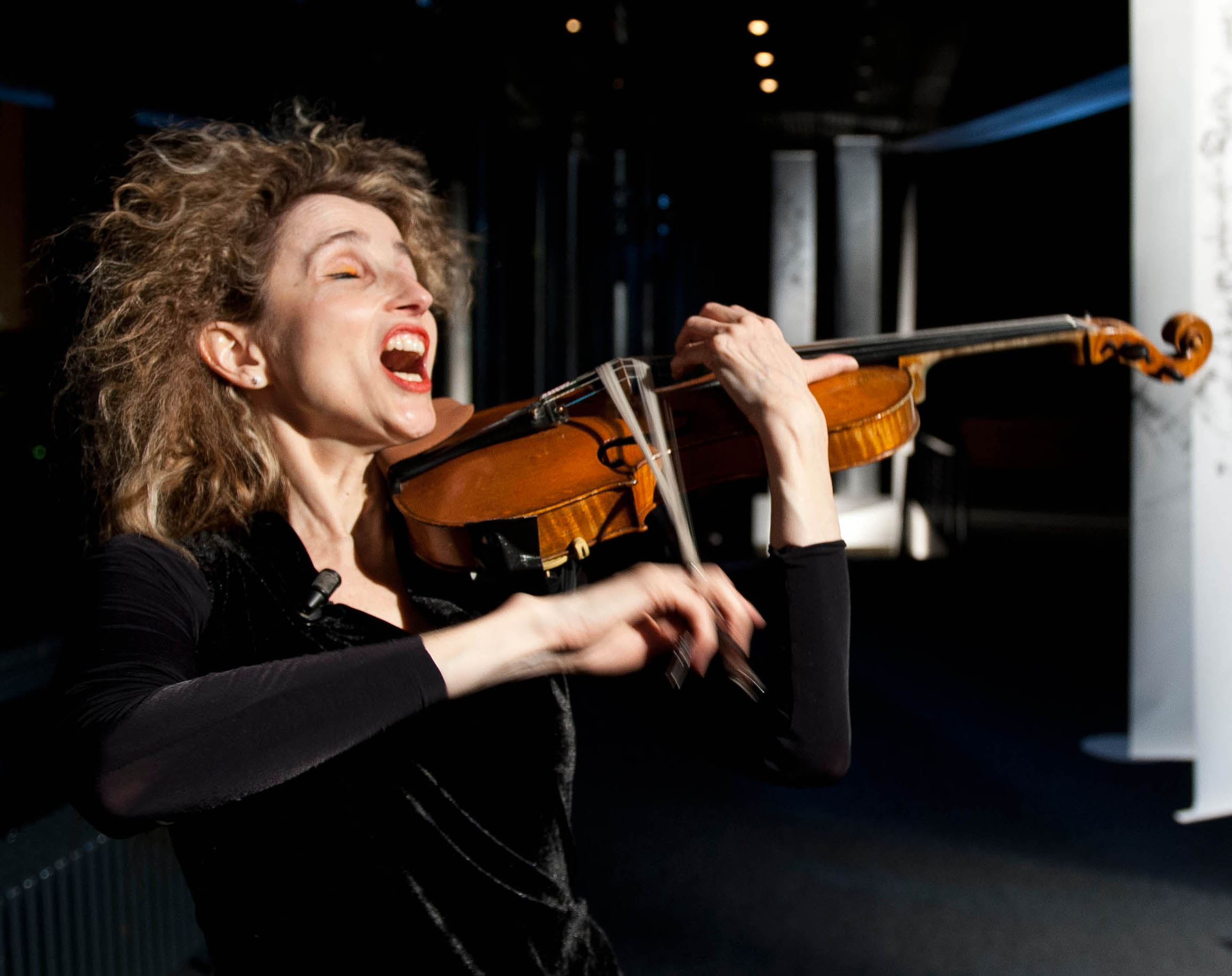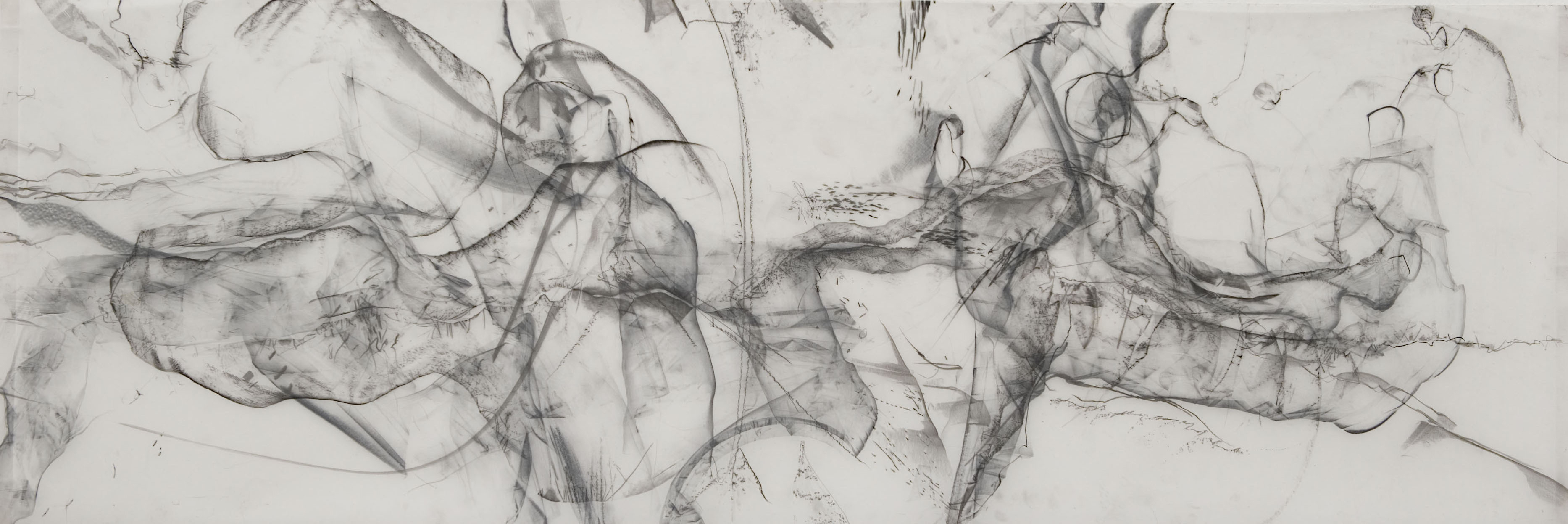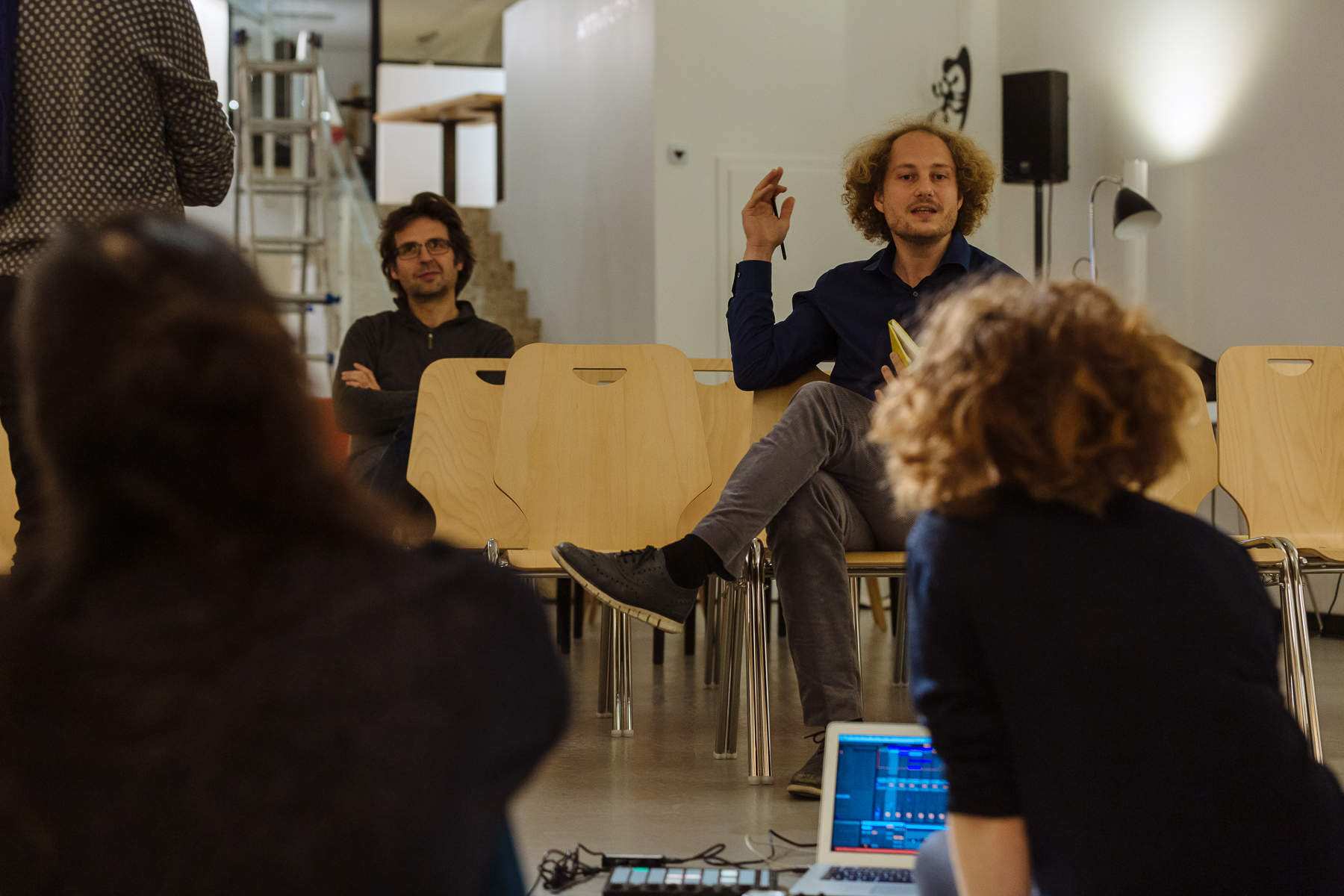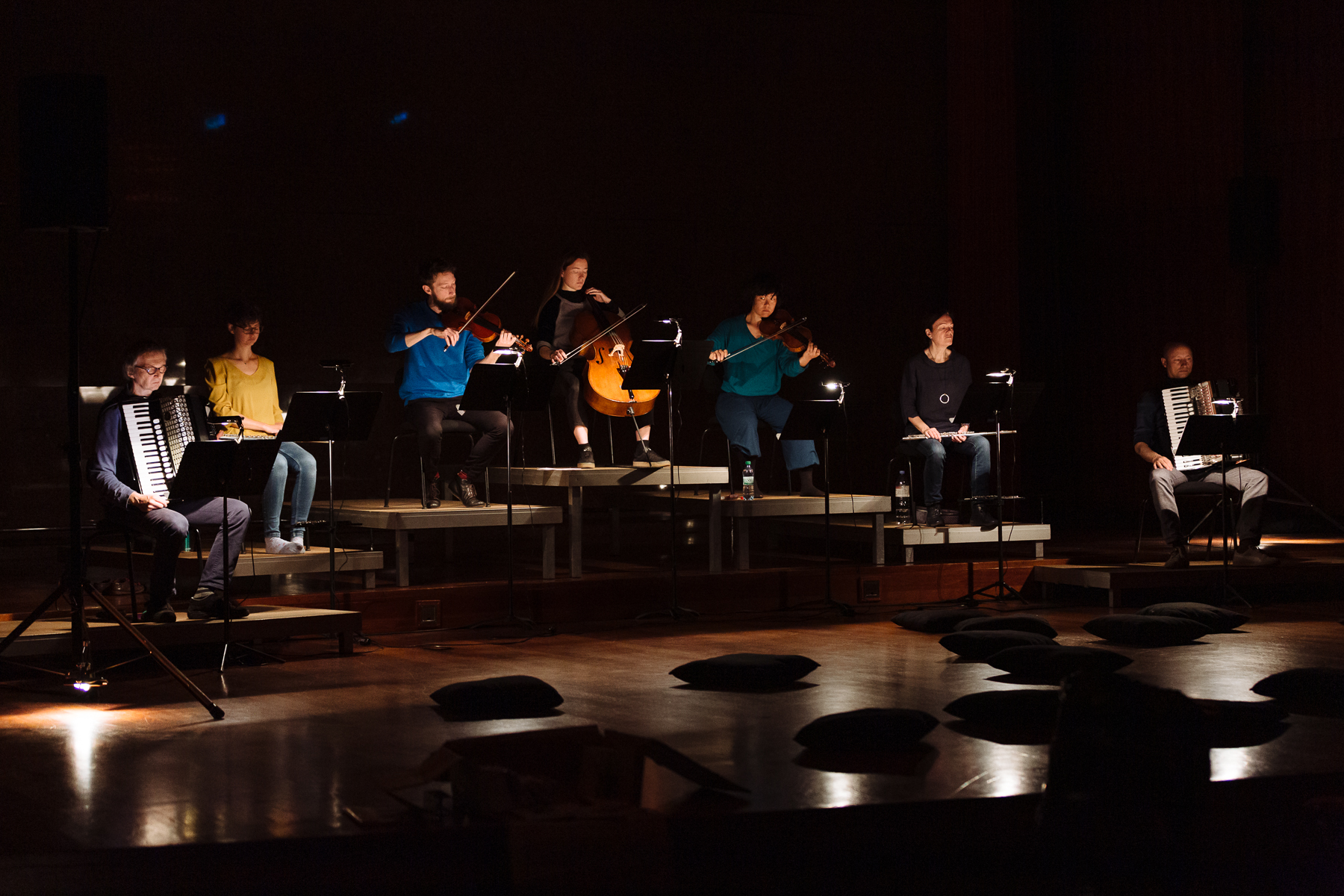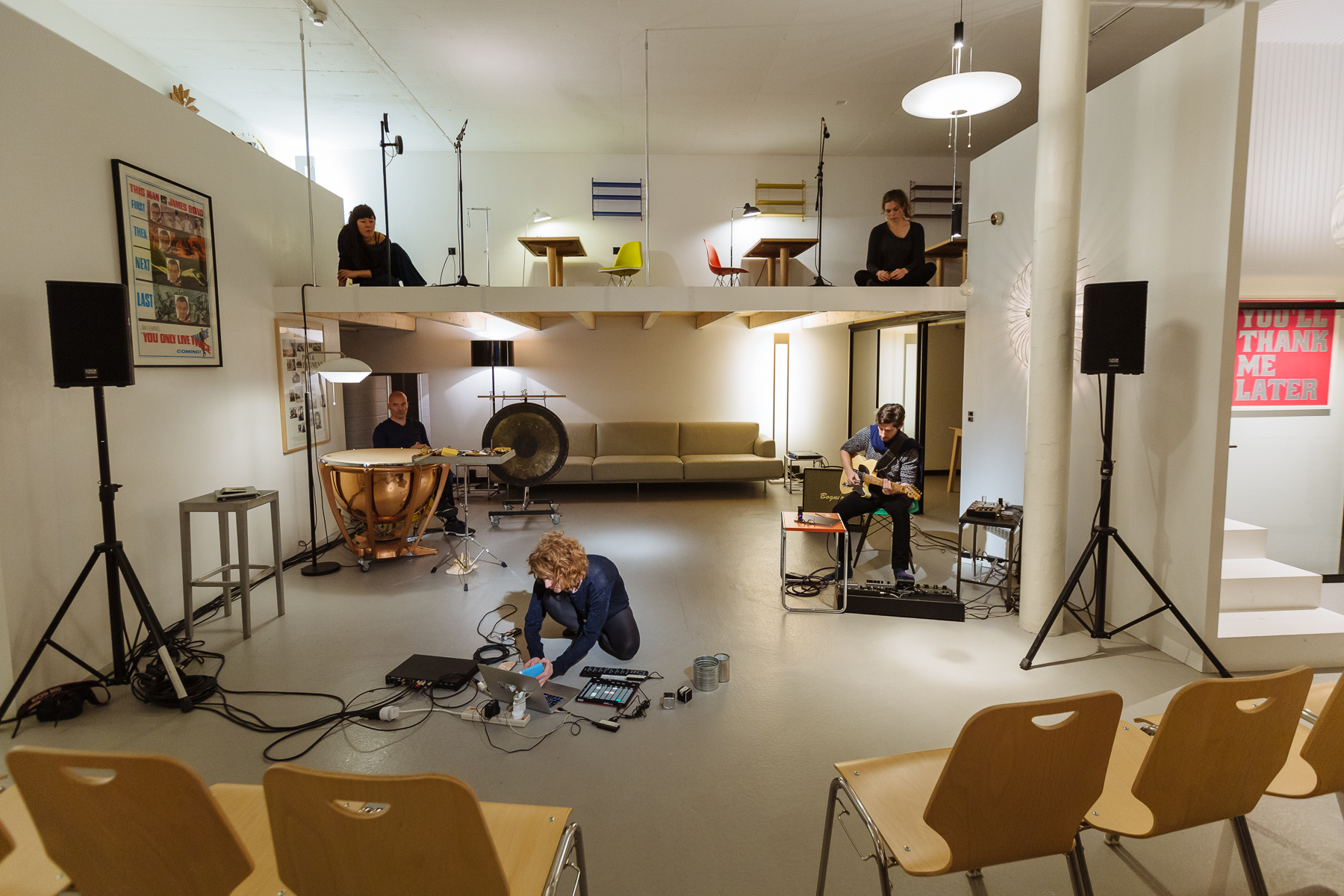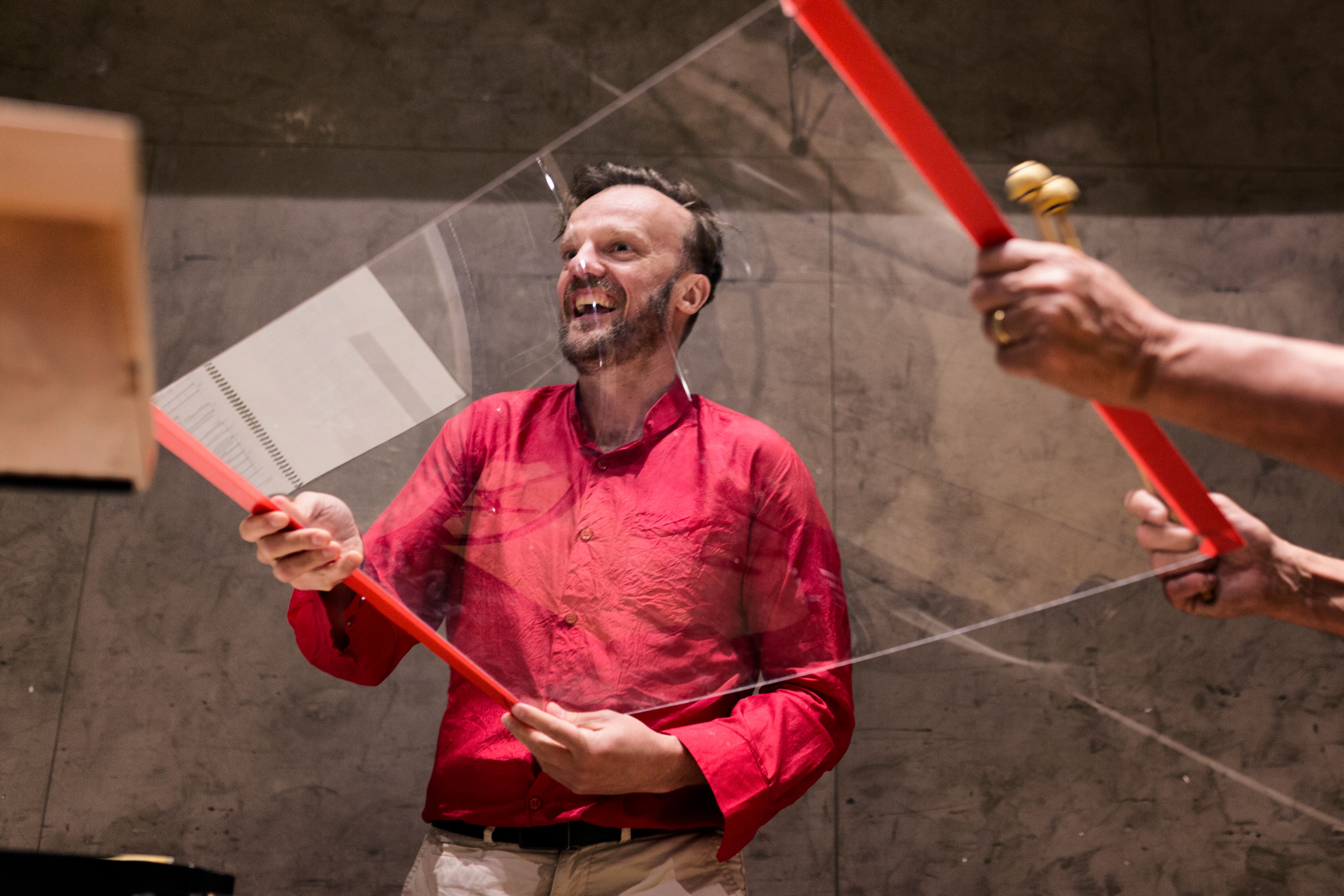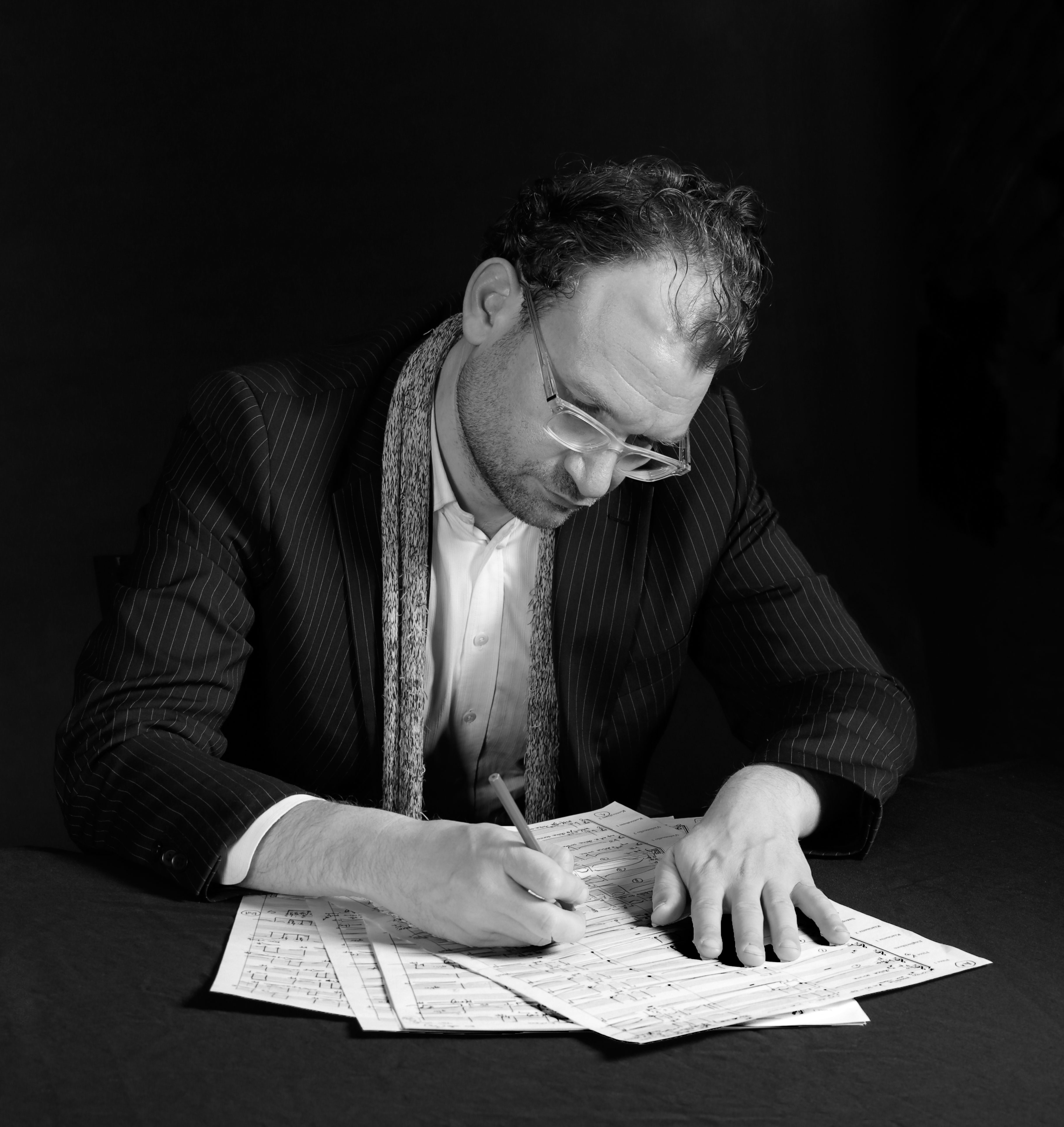
Composer Michael Pelzel is currently polishing the final details of his first opera for the Opernhaus Zurich. In this interview with Bjørn Schaeffner, he talks about the razor’s edge, zero energy states and that certain degree of lightheartedness work sometimes needs.
Michael Pelzel, how’s life?
Very hectic at the moment, I am reaching my limits and I’m working from home right now.
You’re on the home straight of your opera “Last Call”.
I can fortunately rely on a great team. It’s a joint effort. As an opera composer, one must always deal with other art forms as well.
Have there been arguments?
Only on one particular issue. I personally had a dreamwalking final in mind for “Last Call”, some kind of gravity song, reminding both of a church chorale and a vocal quartet in the style of “Manhattan Transfer”. I wanted to establish some kind of zero energy state at the end, but my partners Chris Kondek and Jonathan Stockhammer both believed that this had already been fulfilled earlier and wasn’t needed anymore at the end of the opera. They eventually convinced me.
How did the idea for “Last Call” come about?
Author Dominik Riedo from Lucerne reached out to me and we developed the material together in an inspiring kind of ping-pong working procedure. Riedo’s text approached my music using an onomatopoeic, almost comic-like language. Pling! Plong! Brrr!
In “Last Call”, humanity loses control over communication media and is therefore forced to dislocate to a distant planet.
I’m sure you’re familiar with this – I experience it day in day out. As soon as you’re done answering your 30 mails, the inbox is full again. We are literally being attacked from all sides and on every possible channel. Then there are tech giants like Amazon or Google, who know more and more about our lives. It makes one wonder.
The programme brochure defines the opera as grotesquely exaggerated.
Yes, the idea is to get quirky, somewhere between Dürrenmatt’s “Die Physiker” or “Le Grand Macabre” by György Ligeti. I was also inspired by Christoph Marthaler, in whose productions you often don’t really know whether he’s being serious or not. I like walking on the razor’s edge.
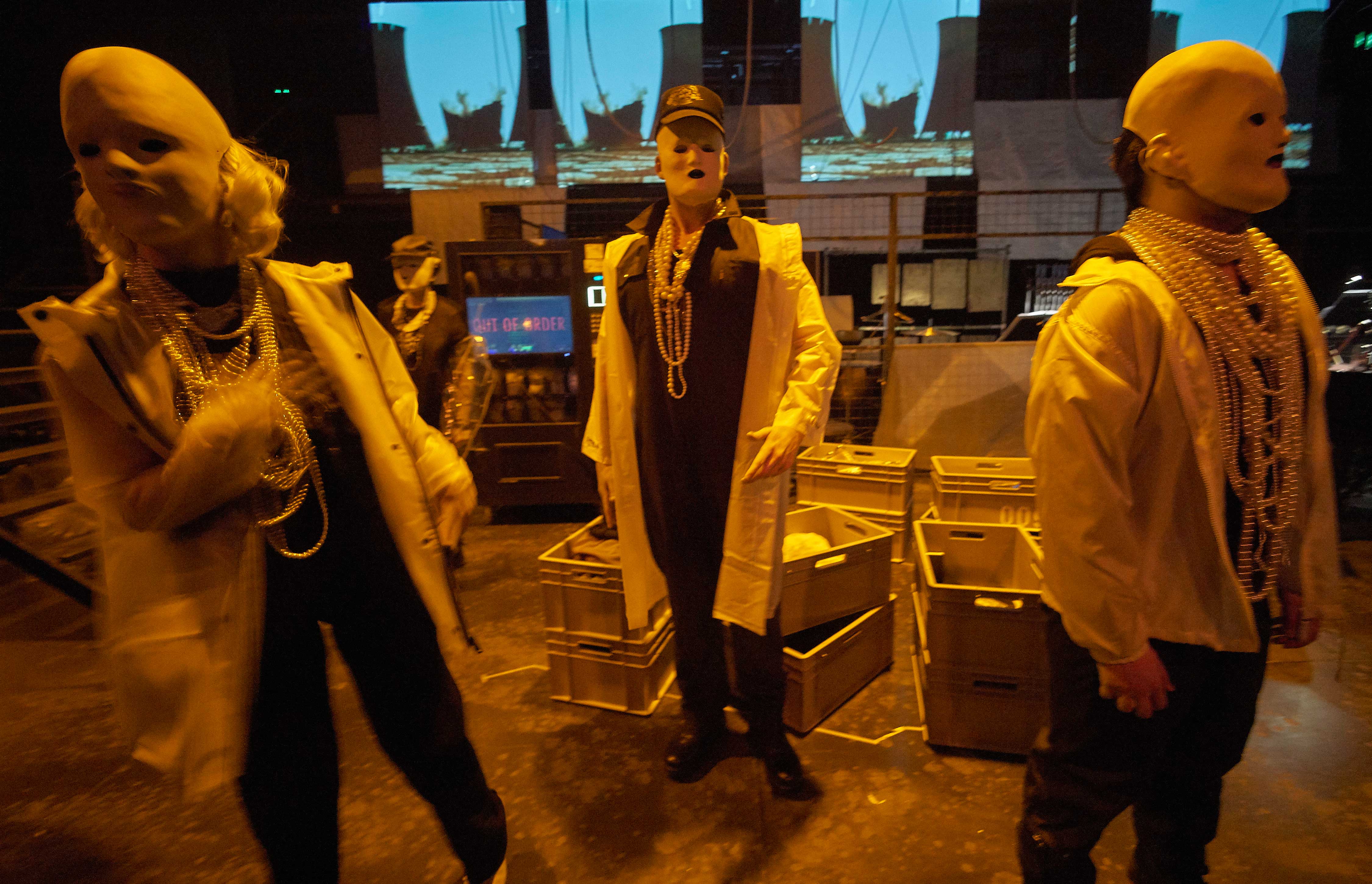
How did you approach “Last Call” in terms of composition?
Many composers are in despair, hopelessly trying to harmonise each and every musical parameter. I believe one has to set to work with a certain degree of lightheartedness and knowing that for a 90-minute work, you can’t compose every note from scratch. I therefore developed and dwelled upon already existing themes and worked in theatrical sense of course.
What bothers me in contemporary opera is this latent tragedy and almost clichéd profundity that’s pervading everything. I wanted to work against that, so I took the liberty of being a little cheekier here and there.
Cheekier?
We slightly altered the “Sendung mit der Maus” melody for example. This is nothing new of course; variations within a composer’s own musical language can be found in Mozart’s works and Wagner sometimes suddenly and surprisingly tapped into baroque elements.
What can the public look forward to?
I am curious too, about how it will all come together. The child must stand on its own feet and then take flight. But the public can certainly look forward to Chris Kondek’s video art. He has this great way of conjuring a trashy kind of pop art into the opera with very few means. Then there’s the stage design by Sonja Füsti, highlighting video art very well and Ruth Stofer’s costumes… everything actually. As said: it’s a joint effort.
Interview by Bjørn Schaeffner
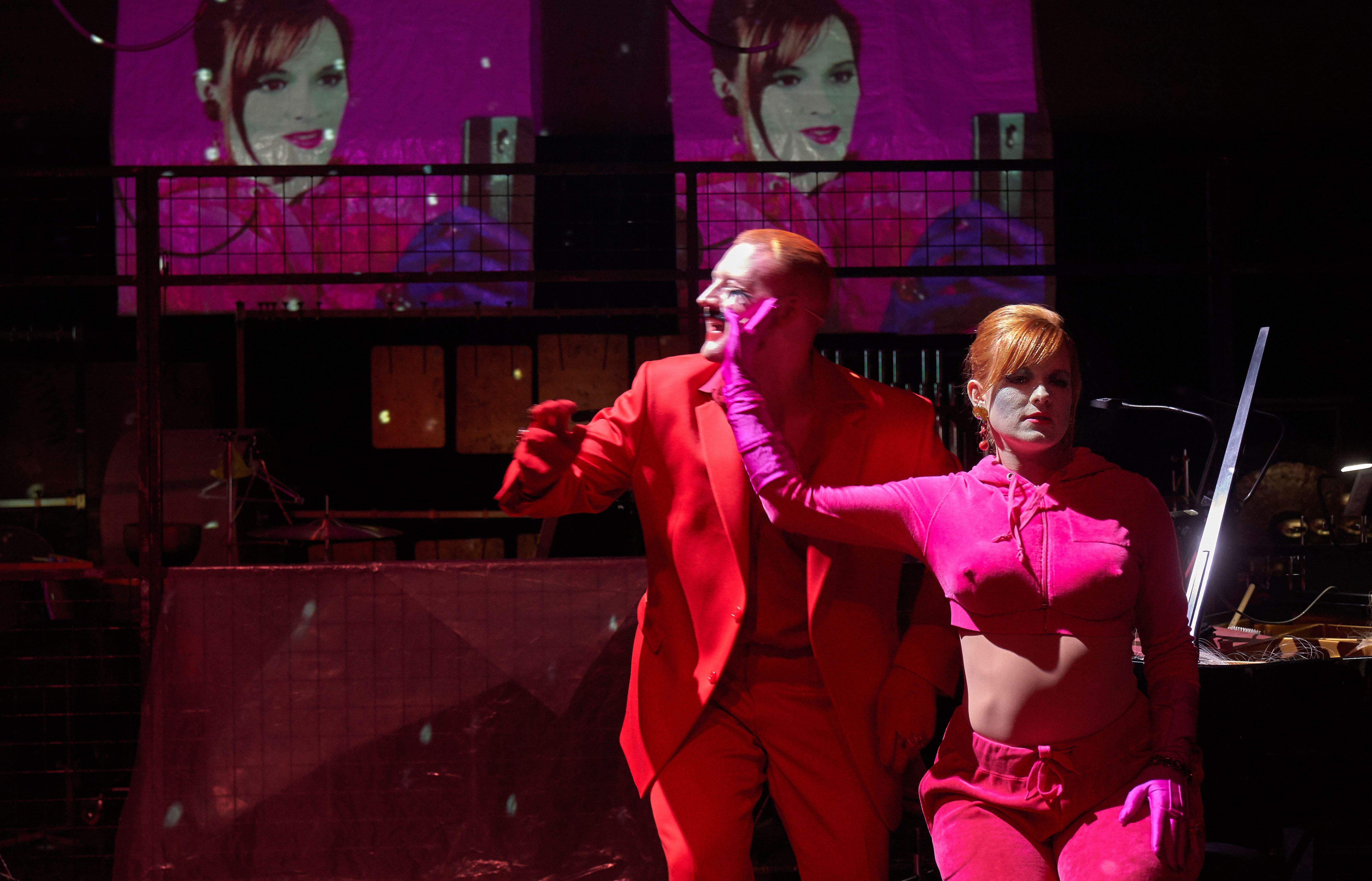
Opernhaus Zürich, Michael Pelzel
broadcasts SRF:
29.Juni 2019: “Musikmagazin“, Kaffee mit Michael Pelzel (auch als Podcast)
1. Juli 2019, “Kultur-Aktualität“, Bericht zur Premiere; “Kultur Kompakt“
neo-profiles: Michael Pelzel, Opernhaus Zürich, Jonathan Stockhammer, Philharmonia Zürich


